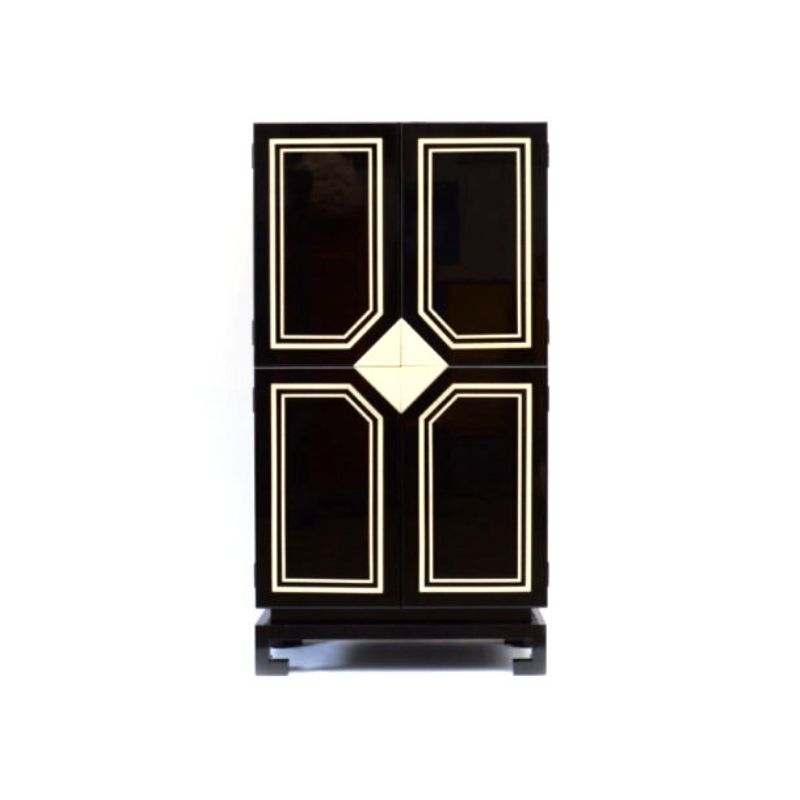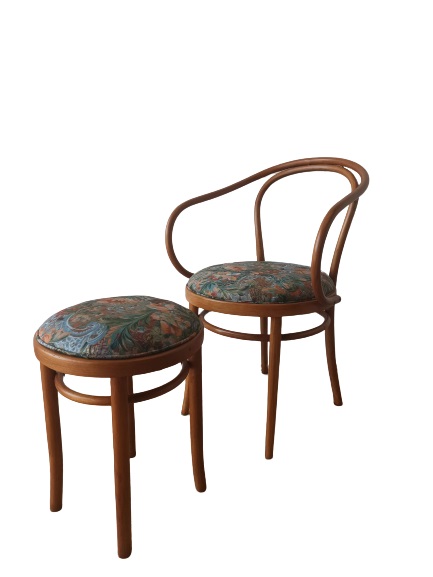LRF, Have you seen this...
LRF, Have you seen this watch? I think I might just have to have one, as I've not yet seen anything quite like it.
http://www.questodesign.com/shop/proddetail.php?prod=ABA-802_2086E&cat=235
I do not dislike...
the approximative way of indicating the time, but I prefer Masayuki Kurokawa's watch on the same dutch site.
As to the original subject. It is a well written and interesting story. Steven Bayley was the first director of the London Design Museum and has with it's major sponsor Sir Terence Conran...and co-writter of the book been part of a large part and witnessed the other part of design history.
I for my part am going to put the book on a wish list
http://www.questodesign.com/shop/proddetail.php?prod=Kiri_watch_idea&cat...
By the way...
The part that I like most is: Daniel Boorstin's quote that is a more extensive version of Marchall McLuhan's rule on the inversion of intentions : 'Nearly everything we do to enlarge our world, to make life more interesting, more varied, more exciting, more "fabulous", more promising, in the long run has an opposite effect.'
Koen
Boorstin was one of the great minds of the 20 th century.
His father Sam was a great friend of my Dads; and his attorney
He was an avid photographer and took pictures of my twin brother and I when we were 6 years old in his law office holding cracker jacks, so we go way back with the Boorstin family,
Is that quote from the Discoveries?
I read that book in 1992 enclosed is a bio for those who might not be familiar with Boostin. who grew up and was educated in Tulsa Okla before going to Harvard at 16 years old.
Daniel Joseph Boorstin (October 1, 1914 ? February 28, 2004) was a prolific American historian, professor, attorney, and writer. He served as the U.S. Librarian of Congress from 1975 until 1987.
Contents
* 1 Life
* 2 The Image and the Pseudo-event
* 3 Librarian of Congress
* 4 External links
Boorstin was born in Atlanta, Georgia and died in Washington, D.C.
He graduated with highest honors from Harvard, studied at Balliol College, Oxford as a Rhodes Scholar and earned his PhD. at Yale University. He was a lawyer and a university professor at the University of Chicago for 25 years. He also served as director of the National Museum of History and Technology of the Smithsonian Institution. Boorstin wrote more than 20 books, including a trilogy on the American experience and one on world intellectual history. The Americans: The Democratic Experience, the final book in the first trilogy, received the 1974 Pulitzer Prize in history. Boorstin also wrote the books The Discoverers, The Seekers and The Creators, a trilogy of books that attempt to survey the scientific, philosophic and artistic histories of humanity respectively.
The Image and the Pseudo-event
Within the discipline of social theory, Boorstin?s 1961 book The Image: A Guide to Pseudo-events in America is notable as an early, landmark attempt to describe aspects of American life that were later termed hyperreality and postmodernity. In The Image, Boorstin describes shifts in American culture - mainly due to advertising - where the reproduction or simulation of an event becomes more important or 'real' than the event itself. He goes on to coin the term pseudo-event which describes events or activities that serve little to no purpose other than to be reproduced through advertisements or other forms of publicity. The idea of pseudo-events closely mirrors work later done by Jean Baudrillard and Guy Debord. The work is still often used as a text in American sociology courses.
Thank you so much..
for these clarifications and your personal connection to Boorstin. Obviously a remarkable man.
This might not be as design related as DA is intended to be but I thought of Boorstin's pseudo-event theory a few weeks ago when Conrad Black was on trial on a number of charges related to the management of his former newspaper empire. One of the pieces of evidence was a security camera recording of C.Black taking out a number of file boxes from his office, if I remember well, on a week-end. I was surprised that the so called evidence was not challenged on the grounds that the typical wide angular lens and bird perspective video of a security camera is now in our common imagination the visual registration of a crime. The moment you see that typical security camera image you wonder: "where is the criminal?". If one had filmed the same scene but at eye level with a regular lens, nobody would think that someone taking out a few file boxes from his own office would be suspect. At the time I wondered "what would be Boorstin's comment?" Thanks again LRF!
Koen
I missed that book The sociology of the Absurd. but my brother who knew Daniel
Boorstin very well and use to talk to him before his death read the book and I will ask him for a book report, but I will go and pick up a copy .
I was most amazed by the Americans
The Creators and my favorite The Discoverers three great works.
Koen 3
I am sorry Koen you are so right that came out of Boorstin book the Image . his 1961 book , I talked with my brother and he said he had a lifetime fascination with Madison Ave and Advertising He claimed that America was living in an "age of contrivance," in which illusions and fabrications had become a dominant force in society. Public life, he said, was filled with "pseudo-events" I don't know why i thought that came from the other book on sociology. you mention what Boorstin would have thought about the Conrad Black tape I keep wondering would he have a field day with "YOU TUBE" were something gets caought on tape every day and makes a event and news,
In the Conrad Black case
the first thing that came to mind was of course Mc Luhan's observation that the "Medium is the message" so if you are on a security camera video it is seen as something illegal. But I think Boorstin was closer by pointing out that the video itself transforms banality it into an event.
Nice points, not others
Nice article in some points.
But in others I feel the world doesn,t go in the right direction thinking like this:
,,,,,,,,,,,, I don't listen to music, but I still found an iPod irresistible as an object. I don't drive much, but I have a Smart Car.,,,,,,,,,
Designers, Should be understood as a compliment?
It,s like being a writer and listen that people says: I don,t read books, but this one looks so good on the coffee table, or, I read too little but people says your book is very good.
If you need any help, please contact us at – info@designaddict.com









